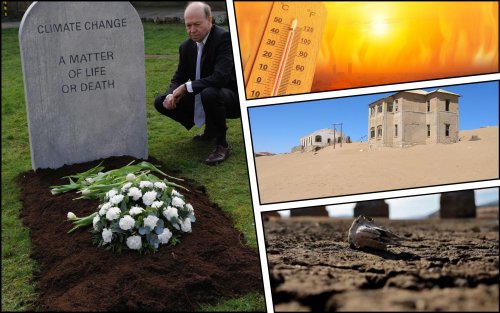Data from the US National Center for Environmental Prediction showed that the global average temperature reached 17.01°C on July 3 and 4, surpassing the 2016 record of 16.92°C.
These were the hottest days ever recorded around the world, Reuters reports.
It is noted that the south of the USA, China, where a persistent heat wave continues with temperatures above 35°C, as well as North Africa (50°C), are suffering from severe heat. In addition, the July temperature record was recorded at the Vernadskyi Ukrainian Research Station in Antarctica (8.7°C).
"It's not a milestone we should celebrate. It's a death sentence for people and ecosystems," said Friederike Otto, a climate scientist at the Grantham Institute for Climate Change and the Environment at Britain's Imperial College London.
Scientists explained that the cause of such high temperatures is climate change in combination with the El Niño climate phenomenon.
El Niño is known to be associated with increased heat and drought around the world, and heavy rain elsewhere. During the phenomenon, warm waters, the temperature of which is 5-9°C higher, rise to the surface in the equatorial zone of the Pacific Ocean. The opposite La Niña phenomenon lasted from 2020 to early 2023.
Berkeley Earth researcher Zack Hausfather predicted that the warmest day will be the first in a series of new records in 2023. After all, the increase in greenhouse gas emissions and El Niño will contribute to new temperature maxima.
Earlier, EcoPolitic wrote, that in May, the United Nations Organization stated that the probability of the development of the weather El Niño phenomenon in the coming months has increased, which may cause an increase in global temperatures and new heat records.
As EcoPolitic previously reported, in Antarctica, the sea ice area is decreasing at an unprecedented rate and, despite the middle of winter, some areas have become bare in places where this had not been observed before.





